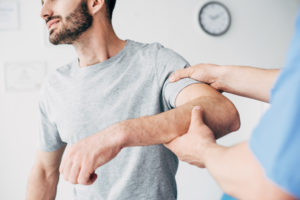Knee Injuries and Their Treatments
If you are diagnosed with a knee condition, your doctor may recommend one or more treatment methods. Some recommendations may be things you can do at home. Other treatments may be conducted by your knee doctor. After an exam, your options and solutions will be clearer. If you are suffering with knee pain or reduced knee mobility, then an orthopedic knee doctor in Pottstown, PA from a clinic like Premier Osteoarthritis Centers of Pennsylvania can help you out with your treatment.
Self-Care Treatments for Knee Conditions
Until the cause of your knee pain is diagnosed by a doctor, you may wish to avoid certain treatments or else you may worsen your condition. After your exam, he or she may suggest you do one or more of the following:
- Perform stretching and strengthening exercises that are focused on your knee. Certain exercises can not only improve an injured knee, but they can also help prevent future injuries or lessen the chance of injuring your knee again after recovery.
- Take anti-inflammatory medicine for the pain that is available over the counter without a prescription. Common medications that contain ibuprofen can be very helpful in reducing pain and swelling as well as help to heal faster. Your knee doctor can provide guidance on dosages and possible side effects. Non-steroidal anti-inflammatory drugs include Motrin IB, Advil, and Aleve. Your doctor may recommend alternatives if you are advanced in age, have high blood pressure, or suffer from a kidney condition.
- Rest the knee. Strenuous physical activity can aggravate an existing knee condition. Your knee doctor may recommend that you continue to be active but to avoid over stimulating the knee. Depending on your typical activities, you may be directed to swim rather than jog for exercise, walk instead of run, etc. If your knee condition is severe, you may need to avoid putting weight or stress on your knee or use crutches until such a time as directed by your knee doctor.
- Elevate the knee. Swelling is a result of increased blood flow to a distressed area of the body. To help reduce swelling of the knee, your doctor may recommend that you elevate it in order to reduce some of the blood flow. You can do this by propping your knee up on pillows. This may also help to reduce some of the knee pain that you are experiencing.
Weight loss. Added pressure on your knee due to excess body weight can aggravate an existing condition. If this is the case, your knee doctor may suggest losing weight in order to speed up your recovery and reduce the likelihood of a recurring injury.

